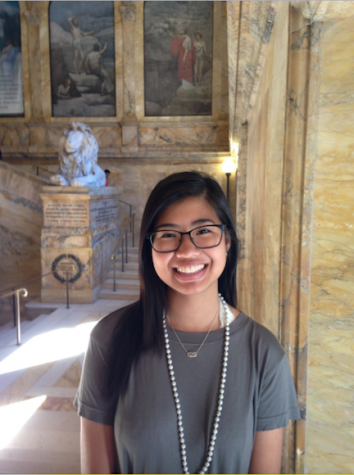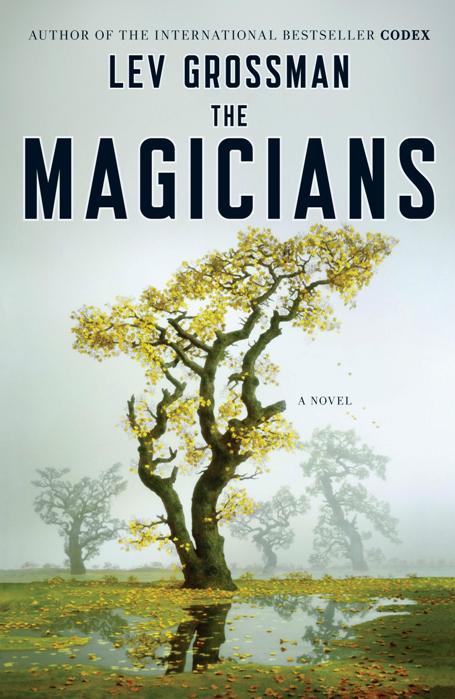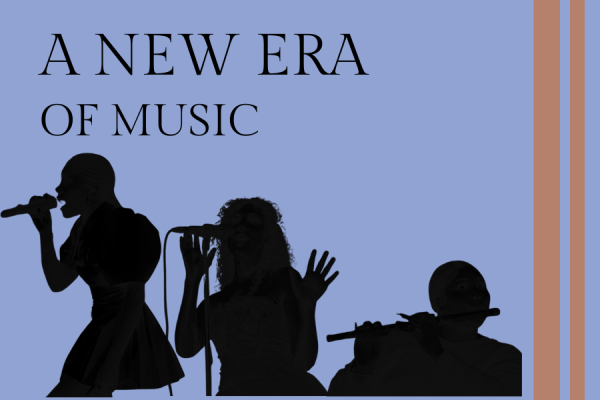‘The Magicians’ Casts a Spell on Readers
Author Lev Grossman took a risk with The Magicians, the first in a trilogy of the same name. In an industry that is heavily criticized for recycling and rebranding old plotlines, Lev Grossman not only recycles and rebrands one old plotline—he recycles and rebrands several.
The Magicians has been heralded as a fusion of the famous Harry Potter series and The Chronicles of Narnia with some additional elements from young adult fiction. It was a gamble, but Grossman’s grasp of the intricacies of a teenager’s mind and his prose create a novel that was hard to put down.
The Magicians tells the story of Quentin Coldwater, a high school senior in the midst of college applications and general teenage angst. He tires of school and friends and life—his one escape is the Fillory and Further series (which bears a striking resemblance to The Chronicles of Narnia). Then one day, he discovers his aptitude for magic—the stuff of muttered incantations and floating objects, not slight of hand—and the hidden Brakebills College for Magical Pedagogy (an arguable double for J.K. Rowling’s Hogwarts). He enrolls in the school and experiences a lifestyle not too different from the average college student—staying up late to study, developing meaningful relationships, and engaging in ill-advised activities. However, Quentin and his new friends find themselves thrust into a situation that the classroom couldn’t prepare them for, and they head off on adventure.
Grossman’s novel does an admirable job creating an entirely new world that co-exists with the one we know. Unlike Rowling, his explanations of the magic in his universe lean towards decorative rather than explicit. There are no spells that the reader can pretend to recreate or any foolish wand-waving. He uses vivid yet vague descriptions of the hand-gestures and internal force to explain his magic. His style is not entirely disagreeable, but at times it makes the world feel underdeveloped.
His development of Brakebills itself is extraordinary. The college curates professor from around the world, each equipped with different specializations and certifications. Grossman creates a legitimate structure to the school—from the different magical fields that the juniors divide into (similar to majors in universities) to the school uniform and logo to the mysterious required “study abroad” semester. Readers will want to attend Brakebills just as much as Hogwarts, if not more, because Brakebills students also dabble in suggestive activity.
Grossman’s forte lies in his extended descriptions of seasons fading into other seasons and the inner workings of Brakebills and the passing of time. A lot—almost too much—happens in The Magicians, and Grossman speeds along the process with long passages with striking imagery and figurative language that suggests a deeper understanding of the human condition. He weaves the thoughts of the teenager Quenton with beautiful details of the colors of the leaves or the carvings in the wall.
Similarly, Grossman shows a penchant for dialogue. His dialogue incorporates the nuances of day-to-day: the “um” and “like” and “or something” and the disjointed, staccato jump from one thought to the next. Combined, Grossman’s writing elevates the book’s worth.
Finally, Grossman’s plot. As mentioned prior, a lot happens. The book spends a considerable length at Brakebills, going through all five years of Quentin’s education before finally jumping into the real adventure of the novel. Personally, I enjoyed the time spent at Brakebills, because Grossman really developed the world and the characters. Just as the build-up was bordering on tedious, Grossman flipped to action.
The action, the climax of the novel, was a bit of a let down. Grossman took a strangely stereotypical path with his ending, in that it seemed like he was attempting to deviate.
Perhaps the biggest question of the entire book was whether Grossman’s intention was to commentate on previous book series or simply recreate them. Either way, the book was an enjoyable read from start to finish. Short enough that the reader is motivated to keep reading until suddenly the story is done, but long enough that the reader feels satisfied.
I’m excited to delve into the next two books in the series—The Magician King and The Magician’s Land—and see where next Grossman takes the story.

Hi, I’m Emily, and I’m the Executive Editor of the Westwood Student Press. I love reading and designing, and I hate avocados. I always have music playing...












Education • Aug 10, 2016 at 6:26 am
Grossman’s novel does an admirable job creating an entirely new world that co-exists with the one we know. Unlike Rowling, his explanations of the magic in his universe lean towards decorative rather than explicit.